T4K3.news
Posse Comitatus Debate Reaches Court
Courts and lawmakers will weigh the legality of federal troop deployments on American soil amid new challenges to the Posse Comitatus Act.
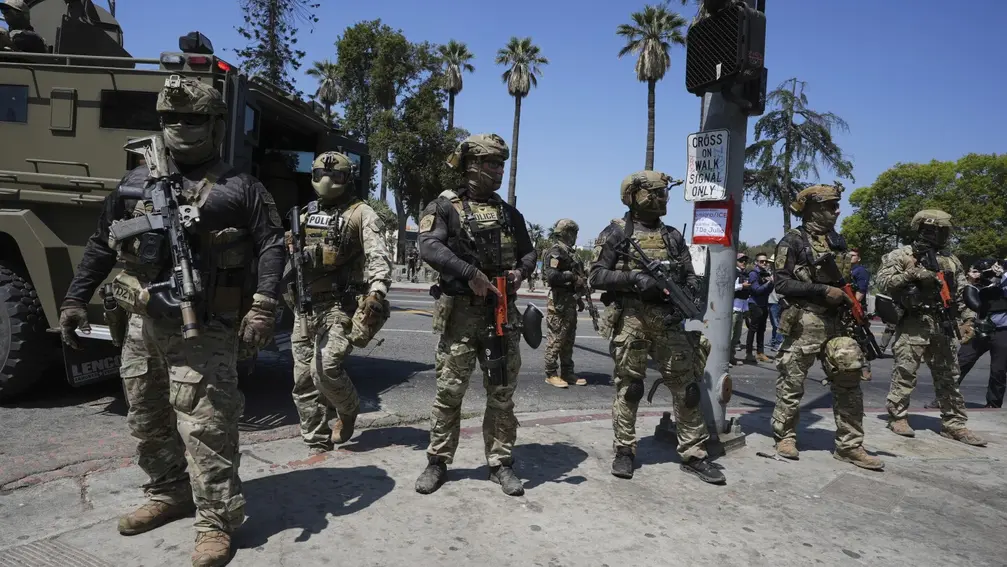
This analysis examines how the Posse Comitatus Act is tested as federal troops are deployed in Washington and Los Angeles.
Posse Comitatus in the Spotlight as Trump Mobilizes National Guard
About 800 National Guard troops entered Washington, D.C., after Trump said they were needed to curb crime in the capital. In California, a federal lawsuit challenges the federalization of Guard personnel in Los Angeles during protests over immigration raids. The administration has also set up militarized zones along the U.S. border as part of a broader shift toward using the military in immigration enforcement.
The Posse Comitatus Act of 1878 generally bars federal troops from enforcing domestic laws. The army can share intelligence and resources with civilian agencies, and the Coast Guard has its own enforcement role. The key question is whether Title 10 federalization and the Insurrection Act can legally bypass the act in certain situations. Supporters say troops are not enforcing laws but protecting federal property, while critics warn that these deployments blur the line between civilian policing and military power.
Key Takeaways
"There is no authoritative precedent on exactly where these lines are."
Steve Vladeck Georgetown Law Center on legal boundaries
"We have a tradition in the United States that we want law enforcement to be conducted by civilians, not the military."
William C. Banks Syracuse University College of Law
"There is a lot in the water about the Trump administration being lawless. What is striking is actually how much the administration is trying to wrap itself in the law."
Steve Vladeck on the administration’s approach
These deployments test a social norm that civilians should do civilian policing. By framing Title 10 authority as the legal backbone, the administration aims to stay within the letter of the law while signaling a broad use of federal power. Legal experts note there is no clear precedent, making court rulings tentative and potentially influential for future actions in other cities.
Beyond the courtroom, the moves carry political weight. They reflect a shift in how the government frames domestic security and may reshape public trust in how the National Guard is used in urban areas. If more troop deployments follow, lawmakers and courts will face questions about oversight, accountability, and the long term impact on civil liberties.
Highlights
- The line between enforcement and politics is thin.
- Civilian policing is the norm not a battlefield.
- Law testing in real time reshapes the rules.
- Power tests itself against limits that history set.
Political and legal risk from domestic troop deployments
Deployments of federal troops in domestic settings raise constitutional questions, could provoke legal challenges, and may trigger public backlash. The coming court decisions and congressional oversight will test norms around civilian governance and military power.
A sober test of a long standing norm remains to come in courts and Congress.
Enjoyed this? Let your friends know!
Related News
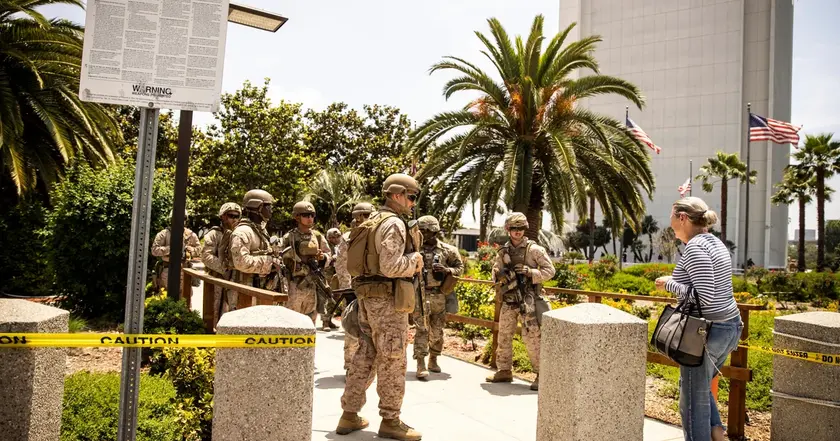
Judge weighs limits on presidential authority in National Guard deployment
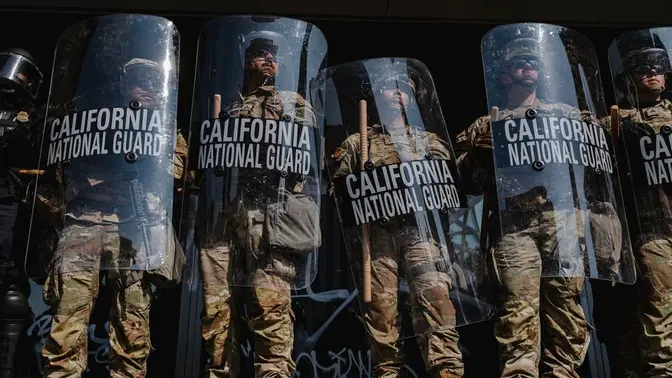
Trump National Guard case heads to California court
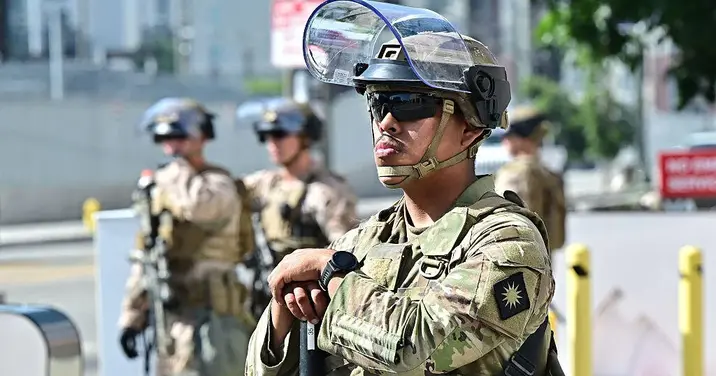
LA deployment tests limits of federal military authority
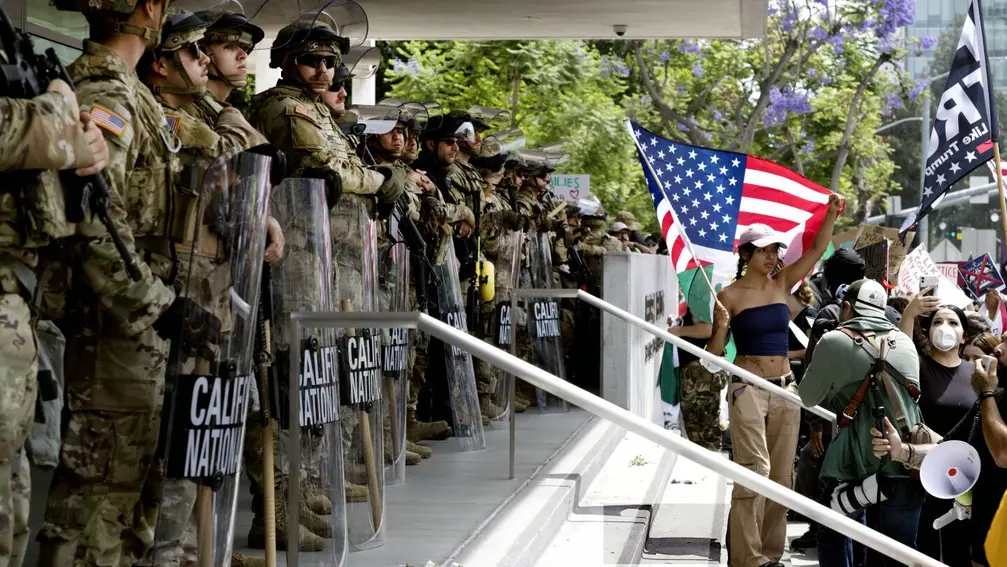
Ruling on military involvement in immigration enforcement
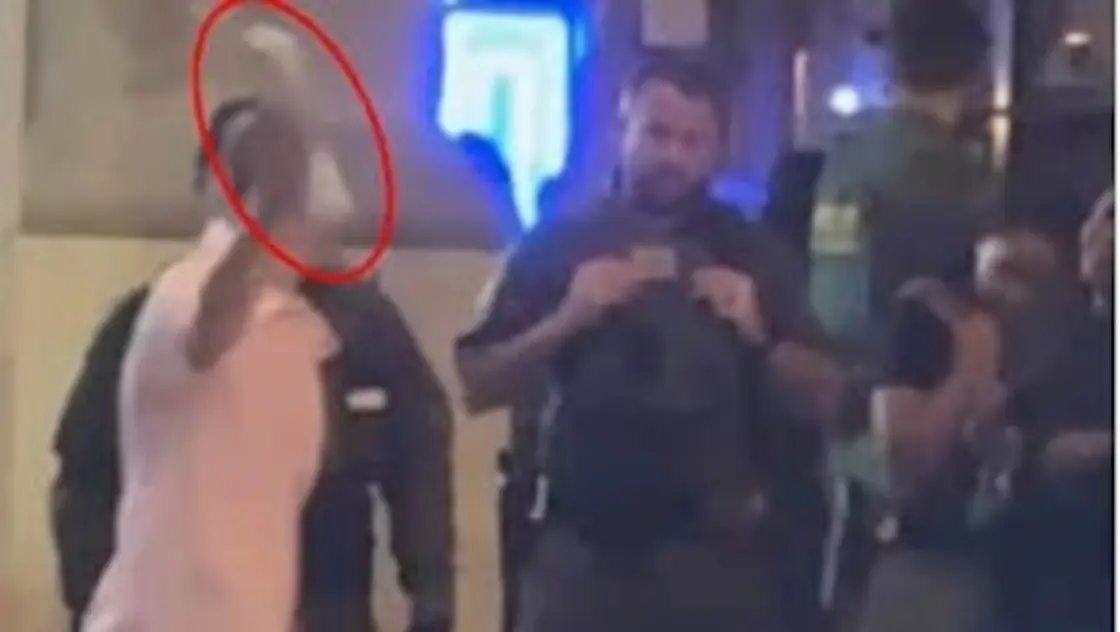
Sandwich thrown at federal officer leads to DC federal assault charges
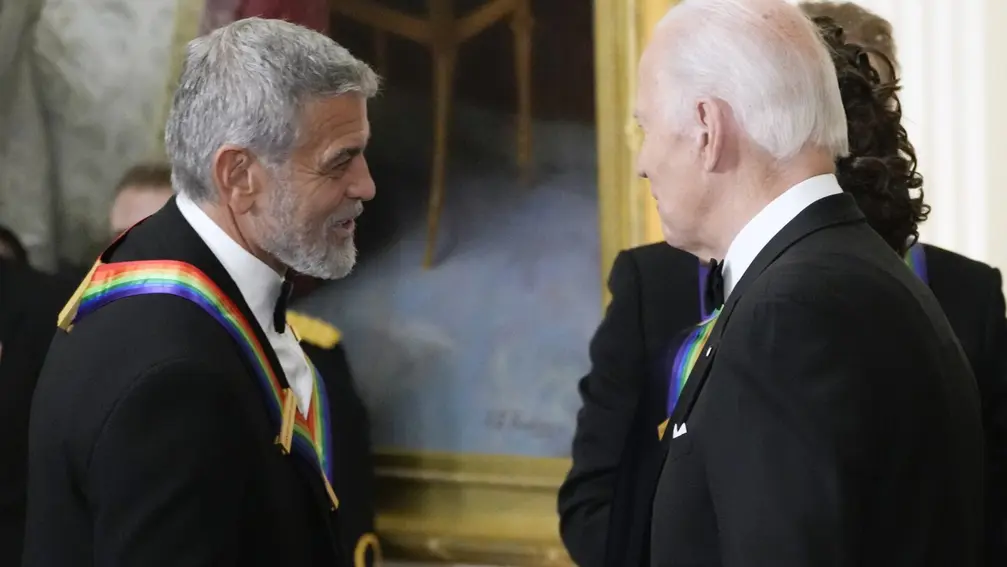
Hunter Biden attacks Clooney for presidential race comments

Top judge's appointment stalled in Germany's political crisis

Security adviser opposes Gaza City takeover plan
